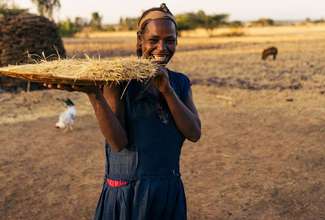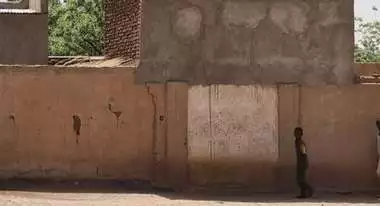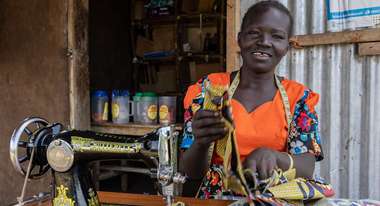Global Refugee Forum: More attention for refugees
For the first time since 2019, states and civil society organizations will convene at the Global Refugee Forum (GRF) from 13-15 December 2023 to discuss which strategies could work to implement the Global Compact on Refugees in practice.
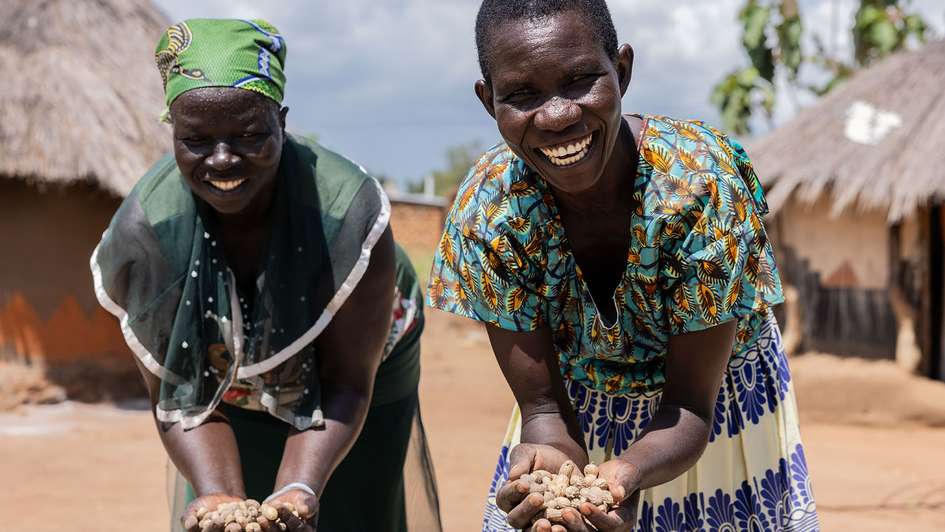
In 2018, the Global Compact on Refugees set a new framework for improving the living conditions of refugees while reducing the challenges for host countries. Uganda is co-convening GRF 2023.
Uganda has had a very progressive reception strategy for refugees for decades and largely maintained this after 2015 / 2016, even though the number of refugees, especially from neighboring South Sudan, doubled from around half a million to one million in just one year and Uganda itself is one of the least developed countries by UN standards.
The core of the strategy is the special promotion of self-reliance among refugees, which already contributes to two of the four goals of the Global Compact on Refugees. The Ugandan government sees work permits and the ability to move freely within the country as key to rapid self-reliance.
Uganda has developed concepts with the UNHCR and other organizations to meet the constantly growing challenges. These concepts included providing refugees with land for a certain degree of self-sufficiency, which was praised by the international community, especially in 2016. Furthermore, the Prime Minister's Office is negotiating with landowners to be able to allocate land to refugees, according to our Welthungerhilfe (WHH) project manager.
Successful results with the 70/30 model
The overall strategy also includes the 70/30 model, which WHH has adopted in projects in the affected West Nile region. In simplified terms, this concept means a project will allocate 70 percent of resources to refugees and 30 percent to the host communities, which include a wide range of income-generating measures, educational opportunities and food security measures. WHH is currently pursuing a 50/50 concept to facilitate access to land for refugees.
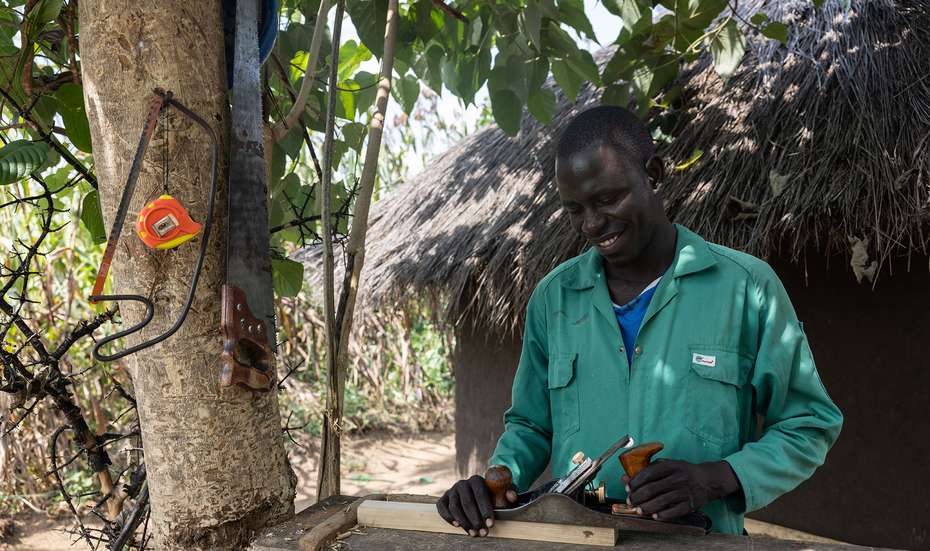
WHH's experience in the region has been very positive. Representatives of both groups repeatedly report that the knowledge they have acquired allows them to generate income through agriculture and the operation of small businesses that go beyond the level of self-sufficiency. In addition, the knowledge and cultivation of iron-rich beans and sweet potatoes, for example, also improves the nutritional situation.
These populations use the income for the children's school fees, among other things. Young people have real prospects, as the vocational skills they learn enable them to become financially independent. Welcoming communities accept and integrate refugees who stay for years or even forever, due to the simultaneous support of both groups.
Long-term funding must be secured
These successes are in acute danger. After the short-term interest, global attention has now turned to other issues and regions. This is a pattern that is the rule rather than the exception in humanitarian aid and development cooperation.
It is precisely in the critical transition phase from humanitarian aid to development cooperation that support dwindles rapidly. Declining support prevents refugees and host communities from being empowered to manage in the medium and long term.
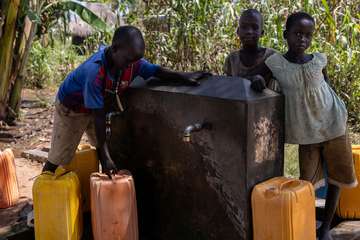
The projects need time and long-term, reliable funding to develop their potential and have a sustainable impact. Specifically, people need several harvests, for example, to become familiar with the newly acquired knowledge of cultivation methods and build on this. A fast-track process does not work for providing basic education and training. Support for establishing micro-enterprises is essential, but this support must continue to allow these enterprises to survive the initial period of potential setbacks.
Although the strategy in Uganda creates the basis for achieving independence more quickly, it also needs time to have a lasting effect. The numerous examples of good practice from all regions of the world should not obscure the fact that governments must continue to promote them on a large scale and adapt them for other contexts to bring about sustainable change.
Binding commitments
At the Global Refugee Forum, it is, above all, up to the signatory states of the Compact on Refugees to make and realize realistic political and financial commitments to further promote such sustainable programs and draw up recommendations for action for other contexts related to refugees.
All too often, other commitments are made even though previous commitments are already behind schedule. This weakens credibility and trust, particularly in the Global North, and is widening the gap with the Global South – a divide that harbors increasing potential for conflict.





